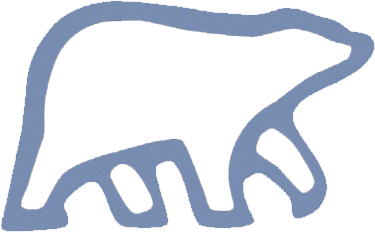Origins - UNDER OPEN SKIES
Fencing the Sky - Near South Pass, Wyoming
In the high country chill of a northern Wyoming morning I pulled on my scuffed boots and buckled on my worn jeans. Still half asleep, I stumbled out of the bunkhouse to the corral. Cathy, the top hand, was saddling her favorite horse, Spinnaker. At twenty-three, she was seven years my senior, and I was more than a little in awe of her. In the darkness I felt the soft, wet velvet of old Roman’s nose nuzzling my hand. Stroking his bay withers, I could see the savage white streaks where a grizzly bear had laid the old mustang’s back wide open.
We swam the horses across Sunlight Creek, the same stream Chief Joseph and the Nez Perce followed out of Yellowstone on their heroic flight from the U.S. Army a hundred years earlier, then climbed through the lodgepole pines up to an open meadow under the rimrock. First light tinged the high Absaroka. Frost tinkled under the horse’s hooves, and they blew cold smoke with every breath. In the meadow we startled a bull moose, who vanished into the cover of the pines. Sometime later we watched a coyote lope home from the evening’s hunt.
The herd was up Panther Creek, not far from an abandoned Indian camp we had found one day while riding after strays. Though the lodge skins had rotted in the intervening century, the lodgepoles were still in place, and that day we rode in silent wonder among a dozen skeletal teepees. Whose lodges were they? Why were they left in place, as if the owners were fleeing some dreaded terror?
Those days on horseback were filled with magic and mystery, sweat and toil. My wages reflected my status -- $100 a month plus bunk and board -- but my real pay was spending time under open skies deep in the American Outback, learning timeless skills from proud mentors, and listening to the stories they told.
My boss, Doc, told me the tale of Liver-Eatin’ Johnston, a mountain man who waged a personal war against the Crow Nation. Firelight flickered over rifles and saddle blankets on the log walls, on scalp locks dangling from the wooden beams, as Doc told how Johnston — upon whose life the Robert Redford film Jeremiah Johnson was based — had set his traps right here in these Absaroka mountain streams. One night Fred Garlow, Buffalo Bill Cody’s grandson, kept me spellbound with stories about the old days in the northern Rockies. On another occasion, a very elderly woman who had been born in a covered wagon at the end of the Plains Indian Wars and who was raised in a sod hut captivated me with her recollections about pioneer life on the western Nebraska frontier.
These men and women I met at the ranch had been there when our world changed forever. They had lived through the end of American expansion into what became the Western United States. They predated cars and highways and telephones and televison. I paid attention and listened to their stories. And as with all true stories about humans and landscapes, theirs were simultaneously uplifting, irresistably compelling, and profoundly disturbing.
Listening to these stories, I felt the power of the enduring relationships that connected the people to the land, and I experienced a deep sense of well being, even exhilaration, as I absorbed the narratives. For better and for worse these stories were my stories too, I realized, they were my inheritance, and they instilled in me a powerful sense of identity and purpose.
Since then I’ve traveled the old trails and listened to the timeless stories in wilderness camps from Alaska to the Everglades, from Midway Atoll to Ellesmere Island. Along the way I’ve had the honor of working and traveling with men and women who embody the qualities that as a nation we profess to admire most: courage, self-reliance, wisdom, strength, compassion, and spiritual depth.
In my experience, the North American Wilderness is the cradle of these virtues, the repository of our epic stories, and the great stage upon which we are privileged, as I have been, to both reenact and reexamine our national experiences. That there is a debate about the value of wilderness in America is baffling to me. We might as well debate the worth of our great libraries, galleries, museums, and universities.
Wilderness enriches us spiritually, culturally, physically, and aesthetically. It is an enduring resource that gives meaning to our lives, nurtures our character, and sustains our beliefs. Our experience meeting the wilderness shaped our national mythologies and continues to define us to this day. Wilderness is and always will be a place of magic and mystery, of sweat and toil.
